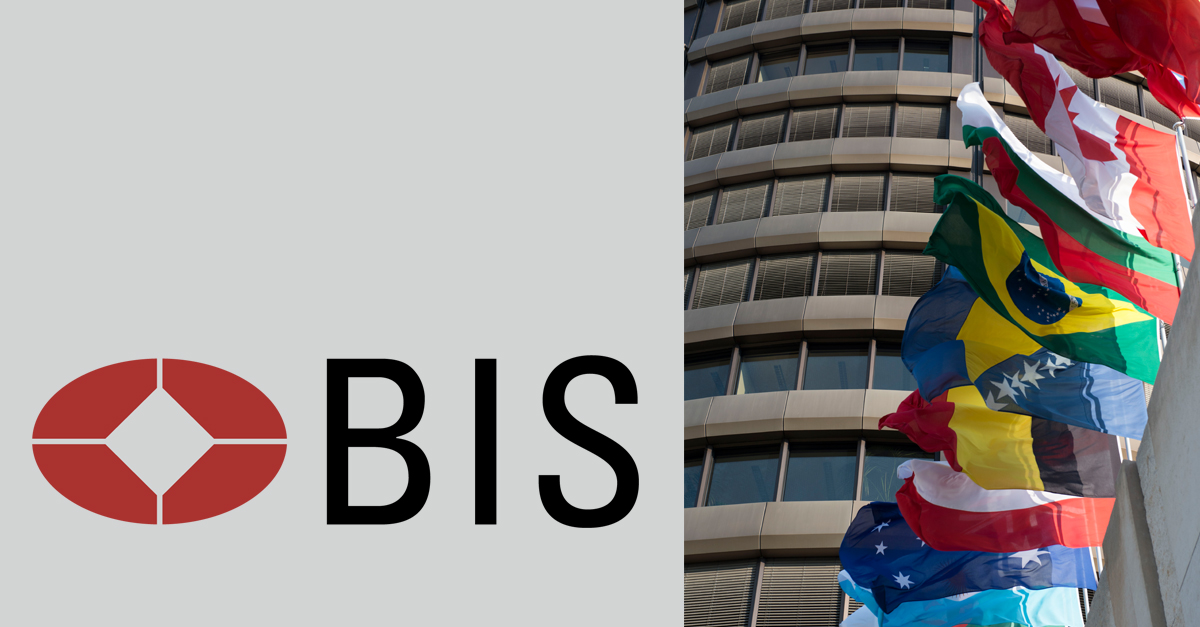ISO 20022 Regulatory Standard
ISO 20022 is a key regulatory standard transforming global payments. We discussed its impact on enhancing payment system resilience, streamlining cross-border transactions, and advancing fraud prevention and compliance.

ISO 20022: Regulation in the Payments Ecosystem
- Transformative Impact of ISO 20022:
- ISO 20022 highlighted as a game-changer in reshaping the global payments industry.
- Featured prominently at the UK Finance Digital Innovation Summit, sparking discussions and innovative ideas.
- Practical Application in RTGS System Revision:
- Bank of England's RTGS system upgrade, a practical example of ISO 20022 standards integration.
- Upcoming introduction of an advanced core settlement engine to elevate system resilience and enhance user experience.
- Driving Global Interoperability:
- ISO 20022 recognized for driving global interoperability across diverse payment chains.
- Positioned as a strategic tool, facilitating richer data exchanges and supporting complex financial transactions.
- Crucial for Businesses and Financial Institutions:
- Increasingly crucial for businesses and financial institutions to adapt to ISO 20022.
- Adoption leads to enhanced data quality, reduced costs, and improved compliance with regulatory standards.
- Future-Proof Choice:
- ISO 20022's flexibility and scalability make it a future-proof choice.
- Capable of adapting to emerging trends and technologies in the financial sector.
- Significant Step Forward in Global Payment Systems:
- Integration of ISO 20022 marks a significant step forward in the evolution of global payment systems.
- Instrumental in fostering a more interconnected, innovative, and efficient financial ecosystem, as emphasized by Victoria Cleland.
ISO 20022: Transforming Global Payments
A pivotal point in the financial services sector, the adoption of ISO 20022 signifies a major change in the international payment systems. This regulatory standard is a strategic move toward more effective, simplified financial messaging rather than just being a technical definition. The following summarizes ISO 20022's revolutionary influence:
- Establishing a common language for financial messaging to enable smooth system communication.
- Its widespread usage is enabling more seamless international trade by altering the way that transactions are handled internationally.
- The capacity to hold a notably larger amount of data, which would help with more thorough analytics and provide transactions more context.
Acknowledged by influential figures in the financial sector such as Victoria Cleland, ISO 20022 is recognized for promoting a more integrated and productive financial environment.
ISO 20022: Enhancing Payment System Resilience
One of the most important aspects for financial organizations is the robustness of their payment systems, and ISO 20022 adoption makes this crucial sector much stronger. The function of this regulatory norm in enhancing resilience is complex and includes multiple important components:
- Improved Risk Management: A key factor in improving financial institutions' capacity for risk management is ISO 20022. This standard permits a deeper comprehension of transactional data by enabling a more thorough and organized interchange of information. Institutions are able to identify possible hazards more quickly and correctly because to this thorough examination. In complex financial contexts, the comprehensive data format of ISO 20022 is especially useful as it allows institutions to take proactive measures to mitigate risks before they become more serious. The integrity and stability of financial operations depend on this high degree of risk management.
- Flexibility During Crisis: The flexibility provided by ISO 20022 is extremely beneficial during periods of operational stress or crisis. The architecture of the standard permits alternative payment routes, which is essential for preserving operations continuity under unfavorable circumstances. In the event that the principal route is compromised, this flexibility guarantees that payment systems can swiftly adjust and redirect transactions through other routes or systems. The ability to process payments with agility is essential to the resilience of financial systems, especially in an environment where disruptions of any kind, whether technological or geopolitical, can happen at any time.
- Reduction of System Failures: The fact that ISO 20022 helps to lower system failures is another important benefit. Processing mistakes significantly decrease when communications formatted in ISO 20022 have improved data quality. System disruptions are frequently caused by errors in financial transactions, which are frequently the result of incomplete or inaccurate data. ISO 20022 reduces these problems by standardizing and improving the data content in financial messages. A more stable and dependable payment system results from this decrease in errors, which also lessens the possibility of operational disruptions that could have far-reaching effects.
In today's dynamic and fast-paced financial climate, more robust and reliable payment infrastructures are vital, and these aspects of ISO 20022 play a key role in building them. The focus of the standard on precise data, operational adaptability, and error minimization is in line with the continuous requirement for resilience in financial systems, guaranteeing that they can bear difficulties and carry on operating efficiently. As such, ISO 20022 is a fundamental tenet in the modernization and fortification of international payment systems, not only a regulatory standard.
ISO 20022: Streamlining Cross-Border Transactions
- Transformative Force in Cross-Border Transactions:
- ISO 20022 stands as a transformative force in reshaping international payments.
- Catalyst for enhanced efficiency and a reducer of complexities in the global payments landscape.
- Cost Reduction through Standardization:
- Notable benefit: Significant reduction in costs from errors and exceptions in cross-border payments.
- ISO 20022 standardizes the format and content of financial messages, ensuring a more seamless and cost-effective process.
- Enhancing Reliability and Trust:
- Reduction in transactional errors enhances reliability and trust in global financial interactions.
- ISO 20022's role goes beyond saving money; it is about fostering confidence in the international financial ecosystem.
- Accelerating Transaction Processing Speed:
- Instrumental in accelerating the processing speed of transactions in international trade.
- Faster and streamlined transactions improve cash flow, reduce settlement risks, and enhance overall financial efficiency.
- Competitive Advantage in the International Market:
- Speed in transaction processing is a competitive advantage in the fast-moving international market.
- ISO 20022's efficiency is crucial for businesses operating on a global scale.
- Improving Interoperability Across Borders:
- Critical role in improving interoperability between different payment systems across borders.
- Bridges gaps, enabling seamless communication and interaction between diverse systems in the global financial ecosystem.
- Harmonizing Payment Systems for Efficiency:
- Harmonization of payment systems by ISO 20022 makes international transactions smoother.
- Breaks down barriers in global trade and finance, fostering efficiency in cross-border financial operations.
ISO 20022: Advancing Fraud Prevention and Compliance
The banking industry is entering a new age of fraud prevention and compliance with the implementation of ISO 20022. In addition to improving compliance procedures, this regulatory norm helps financial institutions become more adept at identifying and preventing fraud.
- Enhanced Fraud Detection: The implementation of ISO 20022 is essential for strengthening fraud detection systems. This standard gives financial organizations the ability to more precisely identify suspicious activity by giving detailed transaction data. Beyond conventional formats, ISO 20022 transactions send data that is richer and deeper, providing additional hints and patterns that can be examined for possible fraud. This degree of specificity enables a more sophisticated and successful identification of anomalies and possible fraudulent activity by providing thorough details about transaction parties, their relationships, and the context of transactions.
- Streamlined Regulatory Compliance: Additionally, ISO 20022 makes the complicated world of regulatory compliance simpler. The consistent formats of the standard are intended to satisfy a variety of local and international regulatory requirements, which facilitates institutions' ability to maintain compliance across countries. Institutions can lower the risk of non-compliance by implementing a systematic strategy to financial communications, which guarantees that they are continuously following the required regulatory criteria. For multinational organizations that operate internationally and are subject to a variety of regulatory contexts, this homogeneity is very advantageous. The uniform framework of ISO 20022 helps to harmonize these disparate criteria, resulting in compliance procedures that are more effective and less prone to errors.
- Improved Data Analysis: Furthermore, new opportunities for sophisticated analytics in risk management and compliance are made possible by ISO 20022's broad data capacity. Financial institutions can use this information to learn more about possible risk factors, transaction trends, and client behavior. Strategic decision-making and proactive risk management depend on this analytical skill. Institutions are better equipped to identify and mitigate risks thanks to more advanced modeling and forecasting made possible by ISO 20022's improved data quality and granularity. Furthermore, by using this data to create more customized and customer-focused goods and services, the organization can gain an even greater competitive advantage.
To sum up, the contribution of ISO 20022 to the advancement of fraud prevention and compliance is immeasurable. Its deployment is a significant advancement that will help financial institutions fight financial fraud more successfully and more easily comply with regulations. In the constantly changing world of international banking, the standard's provision for comprehensive transaction data, consistent message formats, and improved data analytics capabilities make it an indispensable tool.
ISO 20022: Facilitating Innovation and Competition
ISO 20022 is bringing about a revolution in the financial services industry by creating an atmosphere that is conducive to increased competition and innovation. Technology suppliers are able to expand their market reach by more efficiently extending their products across several currencies and nations thanks to this revolutionary regulatory standard. Additionally, by easily integrating cutting-edge technologies like blockchain and artificial intelligence, it establishes the groundwork for the creation of new services and applications. The standard's capacity to adjust to new technological developments is essential to maintaining its applicability in a digital environment that is changing quickly.
Additionally, ISO 20022 is essential for boosting market competition. It brings about a dynamic transformation in the industrial environment by making it easier for new entrants to operate in numerous markets, thereby threatening the dominance of established financial institutions. In addition to spurring innovation, this increased competition also improves customer services, demonstrating the standard's influence on the market in addition to its technical features.
The global financial services industry's growth and evolution depend on the development of this creative environment. ISO 20022's impact on creating a more competitive, efficient, and networked financial ecosystem is becoming more and more apparent as it is accepted globally, highlighting its importance for the development of global finance.
ISO 20022: The Future of Financial Transactions
In the field of financial transactions, the integration of ISO 20022 is not just a step forward but a huge leap, highlighting its essential role in creating a more effective, linked, and resilient financial ecosystem. This regulatory standard has demonstrated that it is more than simply a compliance requirement but also a beacon of strategic change in the financial industry. It is at the forefront of preparing financial systems for a variety of future opportunities and problems.
It is impossible to overestimate the significance of ISO 20022 in the changing face of global finance. This standard is essential for enabling smooth communication and integration across various financial systems and borders as the world's financial markets grow more integrated. The globalization of financial services is greatly aided by its universal language for financial communications, which is crucial in linking disparate systems.
Furthermore, ISO 20022 is a major investment in the financial sector's future-proofing. It offers a flexible and adaptable architecture that can adjust to new trends and breakthroughs in a world of swiftly advancing technology and changing regulatory environments. By implementing ISO 20022, financial institutions not only align themselves with industry best practices but also create a foundation for easily embracing future advancements in international finance.
Read More

Reduce your
compliance risks

